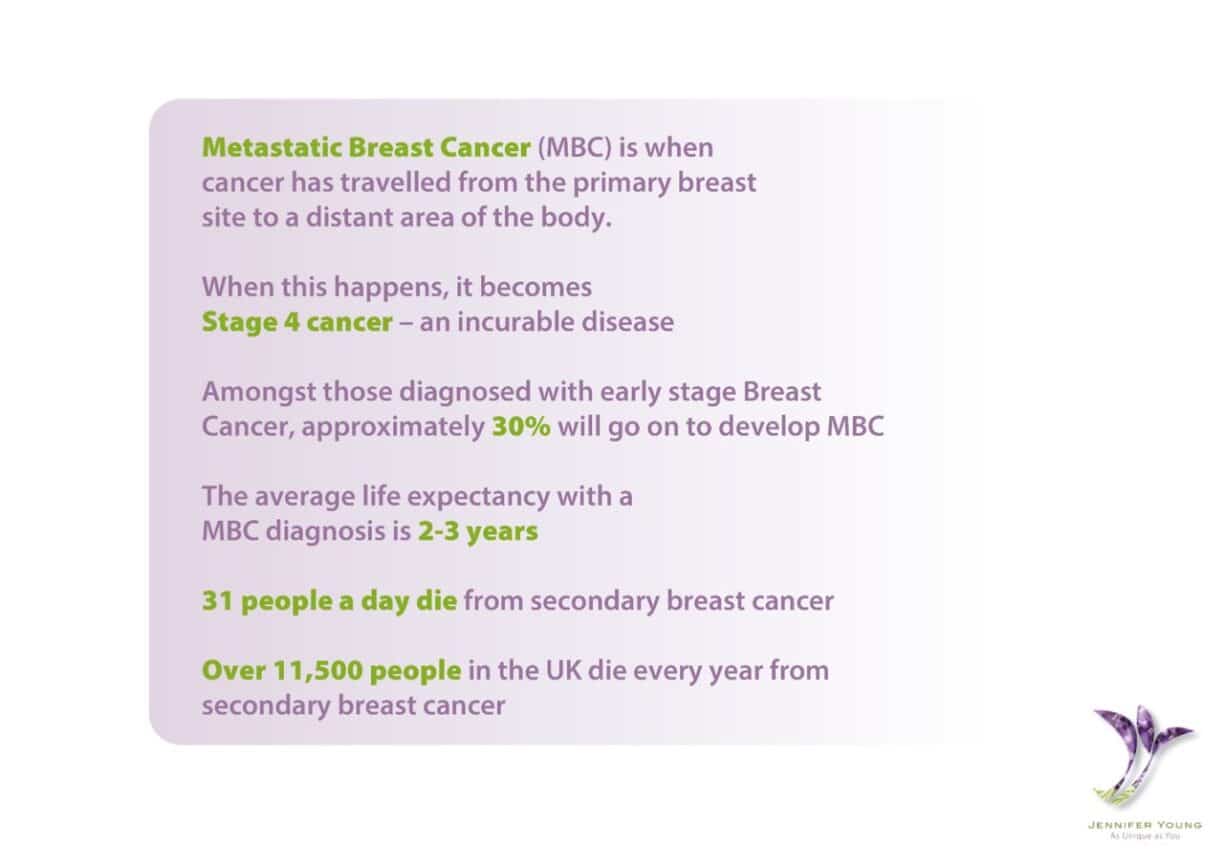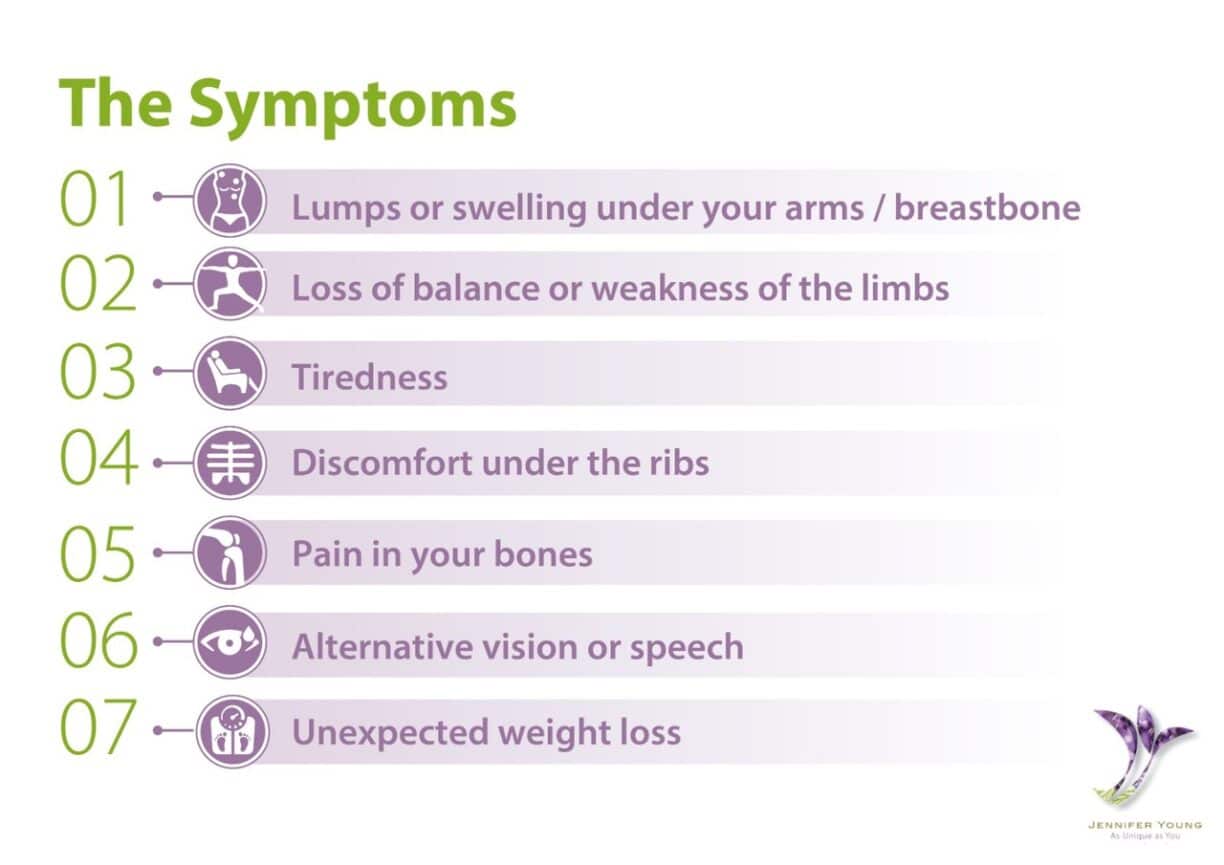October is Breast Cancer Awareness Month, and it’s time to give as much attention to secondary cancer as we do primary cancer, with alarming statistics showing 31 people die every day from secondary breast cancer.
World-renowned skincare expert Jennifer Young has developed a range of products in her Beauty Despite Cancer range, to help improve quality of life and target the side effects of cancer treatment for those going through all stages of their cancer journey.

Breast Cancer Awareness Month is a pivotal time of year to raise awareness of a disease that touches so many of our lives. Very little attention, however, is given to secondary breast cancer and identifying the signs of a disease that can become incurable.
Metastatic Breast Cancer (MBC) is when cancer has travelled from the primary breast site to a distant area of the body. When this happens, it is almost always classed as an incurable disease. However, with treatment, many people live for a long time with secondary breast cancer.
Amongst those diagnosed with early-stage Breast Cancer, approximately 30% will go on to develop MBC, where the average life expectancy after diagnosis is 2-3 years. Over 11,500 people in the UK die every year from secondary breast cancer.

We need to talk about this, starting with creating awareness around 7 key symptoms:
- Lumps or swelling under your arm/breastbone
- Loss of balance or weakness in the limbs
- Tiredness
- Discomfort under the bra
- Pain in your bones
- Alternative vision or speech
- Unexpected weight loss
Jennifer Young is a world-renowned expert in specialist skincare for those living with and beyond cancer. She comes from a scientific background and is an experienced microbiologist and associate member of the Royal Society of Medicine, who has decided to combine her knowledge with a passion for natural skincare and wellbeing to create her own product line, specifically for those who have had a cancer diagnosis.
Jennifer uses a data-driven approach to support cancer patients, providing skincare products that have been created in collaboration with NHS cancer patients and oncology nurses, as well as therapist training in a variety of oncology touch treatments.
Jennifer Young said: ‘We are all acutely aware of the alarming statistics around people being diagnosed with primary cancer, and we need to give the same attention and focus to secondary cancer.
30% of all cancer patients will go on to develop secondary cancer, and we want every single person to be aware of the symptoms so we can help save lives and improve the quality of life for those living with cancer.
We have developed a range of products in our Beauty Despite Cancer range to help people going through cancer and cancer treatment.
There is so much support that we can provide to those who have had an MBC diagnosis. We want to help make each day better and more comfortable for those who have had a diagnosis.
We want to improve the lives of all those who have been diagnosed with MBC and to help individuals spot the signs, seek help and have the information they need to advocate for themselves.’
Mary Huckle was diagnosed with secondary breast cancer eight years ago and has been campaigning for more awareness, understanding and access to treatment for those working through secondary breast cancer and MBC.
Mary Huckle said: “I was diagnosed with breast cancer just over 15 years ago, and with secondary breast cancer 8 years ago.
For as long as I can remember I have advocated for better support, improved care, access to timely diagnostics/results, and of course for much-needed research and access to drugs.
For as long as I can remember, nothing has really changed in any of the aforementioned as far as secondary breast cancer is concerned. Geographical inequalities and disparities still exist in the UK. I believe that both collective and individual voices can make the change.
The time is now to be confident in ourselves, have knowledge of our disease, and believe in the strength of our convictions. How else can we strive to make metastatic breast cancer a chronic condition rather than a death sentence, and put an end to 31 British women dying every day?”





